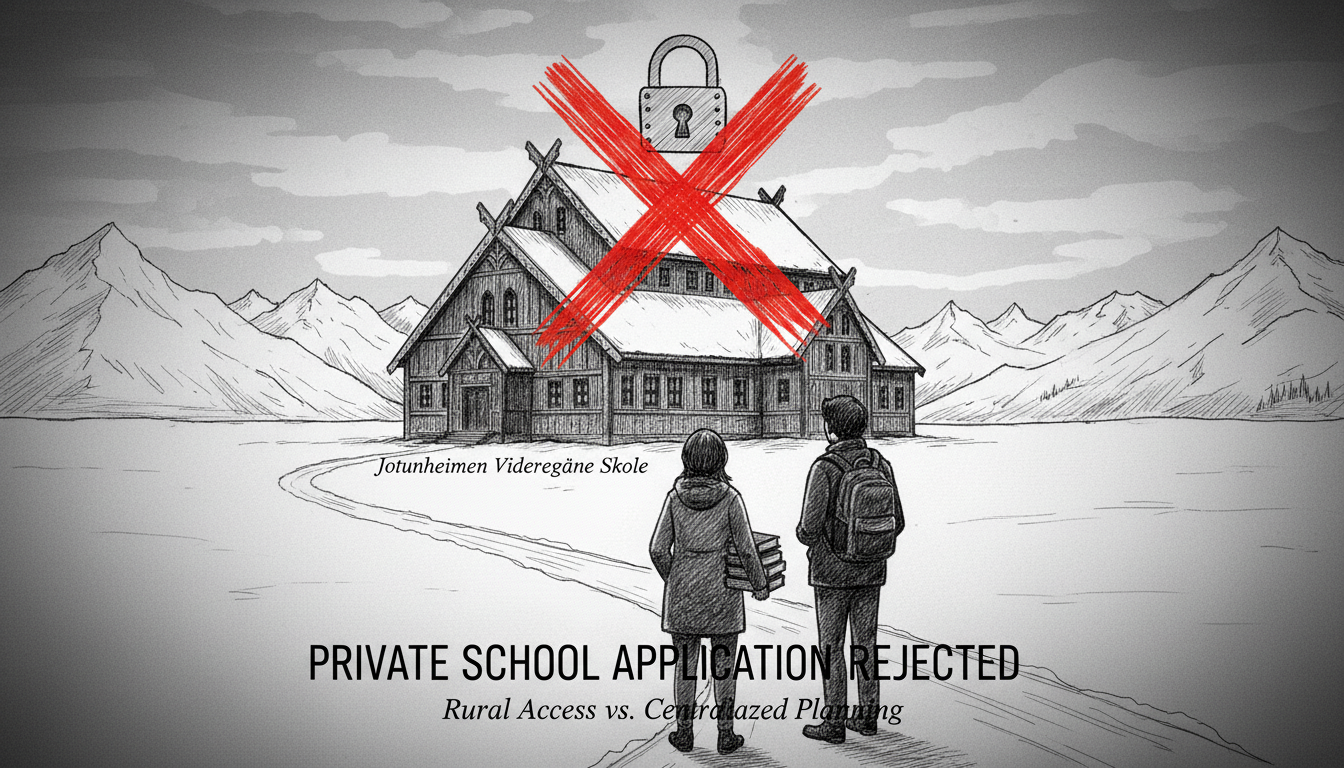Norwegian education authorities have rejected Jotunheimen Videregående Skole's application to become an approved private school. The decision comes after the school sought official recognition following recent public school closures in the Innlandet region.
The Education Directorate determined that establishing the private school would negatively impact public education offerings in the area. Officials acknowledged the application met minimum legal requirements but denied approval based on discretionary considerations. The county council had previously recommended against approving the school.
School board leader Hanna Skjåkødegård confirmed they will appeal the decision to the Ministry of Education. She expressed determination to continue their fight for the school's survival. The institution has operated as a private tutoring center since August but sought full private school status with state funding outside the public system.
The controversy stems from last year's decision to close two high schools and four school locations in Innlandet. Students from Lom watched helplessly as officials made the closure decision. One 17-year-old student warned that communities would die without their local schools.
The political fallout was immediate. Then-Justice Minister Emilie Enger Mehl accused local politicians of compromising principles for power. She described the closures as tragic for future generations, forcing teenagers to either relocate or endure four-hour daily commutes.
Behind the closures lies a stark demographic reality. Innlandet's high schools have nearly 3,500 fewer students today compared to 2013. Projections indicate another 3,000 student decline by 2038. Last academic year, 1,900 school places stood empty across the county's 23 public high schools.
This declining enrollment directly reduces state funding. Since 2020, support for secondary education in Innlandet has dropped by 128 million kroner. County officials warn that without structural changes, all high schools in the region will face tighter budgets and worse conditions.
Jotunheimen's supporters have gathered substantial financial backing. Local businesses and individuals contributed over 70 million kroner to keep education available in Lom. Skjåkødegård emphasizes the importance of maintaining hope for students who feel unheard by politicians.
The school currently operates successfully as a private tutoring center. Students can prepare for exams without receiving regular grades. Supporters vow to continue their battle for full recognition, arguing rural communities deserve educational options.
This situation highlights Norway's ongoing struggle with rural depopulation and educational access. As student numbers decline, remote areas face difficult choices about maintaining local institutions. The Jotunheimen case represents both community resilience and systemic challenges in Norwegian education policy.
The appeal process will test whether local initiatives can overcome centralized planning decisions. With substantial community investment and determined leadership, this school's fate may influence similar cases across rural Norway.

